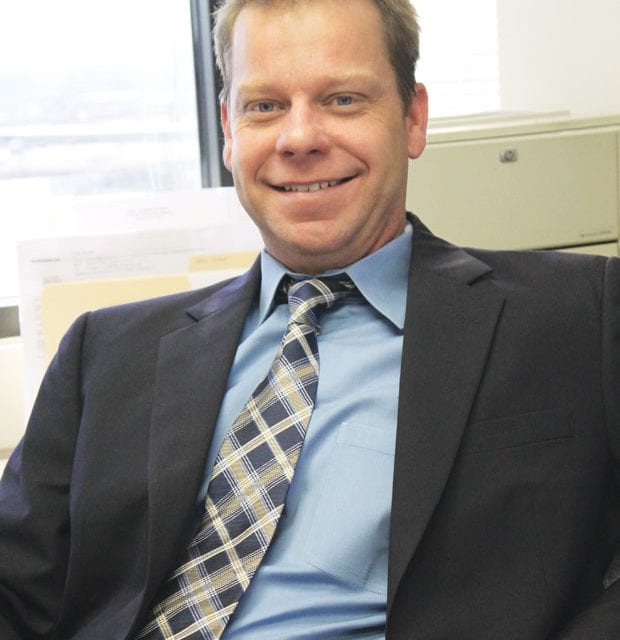As the new executive director of Legal Hospice of Texas, Tony Lokash hopes to continue to make service delivery barrier-free
Roger Wedell served as executive director of Legal Hospice of Texas for 13 years, but as the agency enters a period of evaluation, as it does every few years, he felt it was a good time to retire.
“I didn’t plan to stay another three to five years, so it made sense,” Wedell said.
On Monday, Tony Lokash stepped into the executive director’s position, and he wants to build on the work Wedell has done.
“I want to build on Roger’s foundation and expand our revenue sources, so we can do more,” he said.
Lokash has more than 20 years of nonprofit experience, most of it with the YMCA. He began work with that organization after high school, planning to stay only a year. However, after 20 years he was still with the YMCA, serving as a program manager and becoming one of 20 national training instructors.
“Those skills transfer and are a good fit,” Wedell said of his experience.
LHT provides legal services to low-income individuals who have HIV or are terminally ill. While there are other legal aid societies who assist people with HIV or a terminal illness, LHT is the only one in the United States that assists both. The organization, originally called Dallas Legal Hospice, grew and spread its umbrella to cover 16 North Texas counties. The organization changed its name in 2007, Wedell said, because it was difficult to raise money in Fort Worth when Dallas was in the title.
Today, clients need information about how the Affordable Care Act is changing how they access healthcare, one of the reasons LHT is evaluating its mission. Also, medical technology has changed how cancer, Alzheimer’s, renal disease and hepatitis C are treated. Advances in transplant procedures have extended patients’ lives. LHT’s services must evolve to address those changes. Wedell said the legal issues faced by clients with HIV have become more complex over the last decade.
“In the early years, they needed a will because they were going to be dead within six months,” he said.
Today, attorneys spend more time on cases, such as a social security appeals or an insurance company challenging a long-term disability claim. LHT is prepared for those challenges.
“I was told we had a great legal staff on board and about 40 volunteer attorneys,” Lokash said.
Lokash said the position appealed to him because of dealing with terminal illness in his own family and understanding how traumatic it can be.
He said helping people with their legal needs reduces their stress and can help with their healing or recovery.
In planning for the future, Lokash said he’s listening to the needs of the community rather than providing services based on the funding and resources.
“The need builds the vision,” he said.
Over the next year, he’ll be watching the ACA carefully to see what legal issues arise and how they’ll affect his clients. He hasn’t seen any red flags yet, but with such a major change in the way healthcare will be covered for so many people, problems will inevitably occur.
“One of the things that attracted me to Legal Hospice is that we make service delivery more barrier-free,” he said.
He hopes to continue that tradition.
This article appeared in the Dallas Voice print edition December 20, 2013.

















